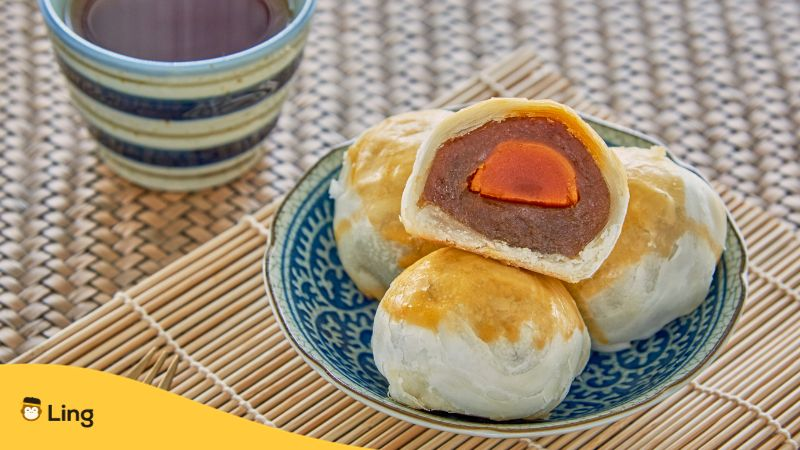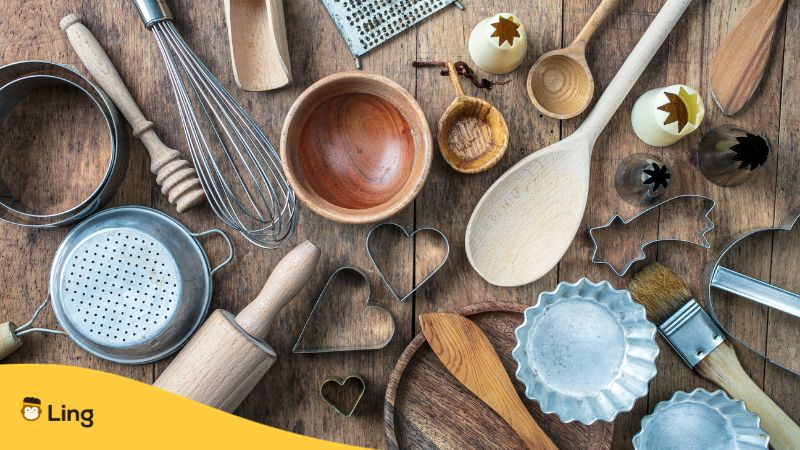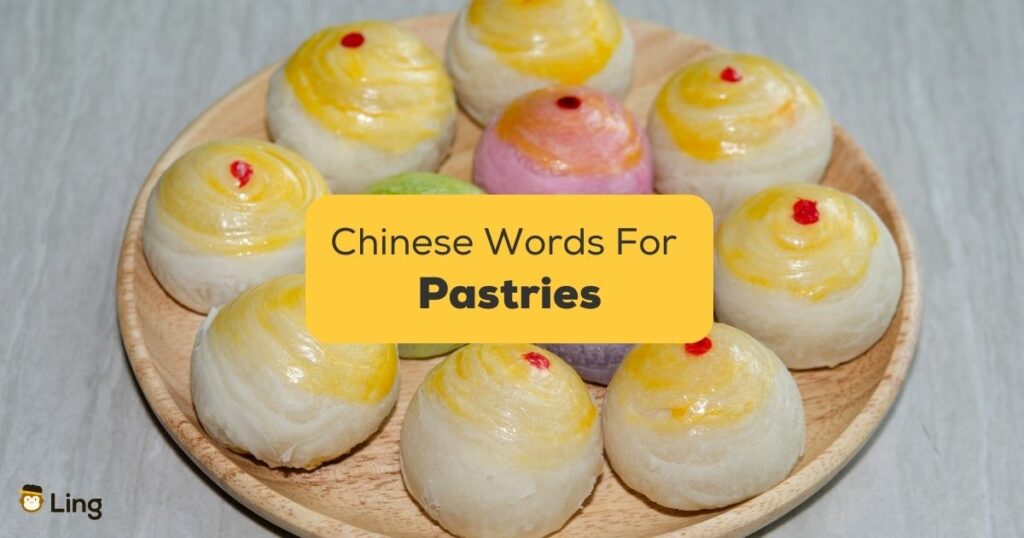Planning on a journey through China? Don’t miss the pastry party! Learning a few Chinese words for pastries opens the door to authentic culinary adventures. Picture yourself in bustling markets and cozy tea houses, confidently ordering “mantou” (steamed buns) or “zhīma jiānbing” (savory sesame pancakes). Trust me – when you master these tasty phrases, you’ll tickle your taste buds and make friends with locals who’ll applaud your cultural embrace.
Why Chinese Pastries Are The Best
Chinese pastries, or “糕点” (gāodiǎn), are particularly beloved by both locals and visitors who travel great distances to sample their distinctive flavors and cultural importance. The excellent artistry and meticulous attention to detail that go into the production of Chinese pastries are some of the reasons why people adore them.
These mouthwatering delicacies frequently include elaborate decorations, exquisite textures, and a pleasing harmony of flavors. Each pastry conveys a tale of tradition, lineage, and culinary prowess, from the iconic mooncakes consumed during the Mid-Autumn Festival to the crunchy, flaky layers of the renowned Chinese egg tarts. Chinese pastries are edible works of art that represent the rich history of Chinese cuisine, rather than simply being treats, or “款待” (kuǎndài).
It is impossible to overestimate the importance of Chinese pastries to tourism and culture. China is a popular travel destination not only for its magnificent scenery and historical sites but also for the chance to experience the cuisine of the nation. Chinese pastries act as a doorway into Chinese culture that can be eaten, allowing guests to experience the many regional flavors and customs.
Additionally, these pastries are essential in many traditional rites and festivities, establishing a sense of solidarity and cementing ties between generations. Chinese pastries are a tribute to the surviving traditions that continue to form the country’s cultural identity and captivate the world, whether it’s the symbolic meanings attached to certain sweets or the delight of sharing them with loved ones.
Popular Pastries In China
Mooncakes (月饼)
The most well-known Chinese dessert is perhaps mooncakes, especially around the Mid-Autumn Festival. They are available in a variety of flavors and fillings, such as egg yolk, lotus seed paste, and red bean paste. The crusts of traditional mooncakes frequently include elaborate patterns.
Sesame Balls (煎堆)
Deep-fried glutinous rice balls with sweet fillings like red bean paste, lotus seed paste, or black sesame paste. They have a crunchy exterior and a chewy interior.
Tangyuan (汤圆)
Tangyuan are balls of glutinous rice flour that are sweetened with red beans, black sesame, or peanut paste. They are a common treat during the Lantern Festival and Winter Solstice and are often served in a sweet syrup.
Jian Dui (煎堆)
Jian Dui resemble sesame balls, although they are frequently bigger and have a flaky, crispy shell. They can be filled with a variety of delicious ingredients, such as lotus seed paste or red bean paste.
Dou Sha Bao (豆沙包)
These buns are filled with sweet red bean paste and then steamed or baked. They are a favorite among many since they have a fluffy exterior and a sweet interior.
Zongzi (粽子)
Although zongzi is frequently associated with savory variations wrapped in bamboo leaves, there are also sweet variations. The sweet zongzi can be loaded with things like dates or red bean paste.
Osmanthus Cake (桂花糕)
Osmanthus flowers with a lovely smell are used to make this steamed cake. The Mid-Autumn Festival is a popular time to consume it because of its delicate, floral flavor.
Sachima (沙琪玛)
The fried dough strands that make up sachima are brought together with malt syrup or sugar to form a crunchy, sweet pastry. It is well-liked in China as a snack and dessert.

Chinese Words For Pastries
Indulge your taste buds as you expand your vocabulary with Chinese pastry desserts! Whether you’re strolling down the bustling streets of Beijing or sipping tea in a serene Shanghai teahouse, these delectable treats and words will transport you to the heart of Chinese culinary culture!
| English | Chinese | Pronunciation |
|---|---|---|
| Pastry | 糕点 | Gāodiǎn |
| Bakery | 面包店 | Miànbāo diàn |
| Croissant | 羊角面包 | Yángjiǎo miànbāo |
| Danish | 丹麦面包 | Dānmài yǔ |
| Pie | 馅饼 | Xiàn bǐng |
| Tart | 酸 | Suān |
| Muffin | 松饼 | Sōng bǐng |
| Donut | 油炸圈饼 | Tián tián quān |
| Puff pastry | 酥皮点心 | Sū pí diǎnxīn |
| Shortcrust pastry | 酥皮糕点 | Sū pí gāodiǎn |
| Filo pastry | 菲罗糕点 | Fēi luō gāodiǎn |
| Cake | 蛋糕 | Dàngāo |
| Cupcake | 纸杯蛋糕 | Zhǐ bēi dàngāo |
| Icing | 刨冰 | Bàobīng |
| Cream filling | 奶油馅 | Nǎiyóu xiàn |
| Almond paste | 杏仁馅 | Xìngrén xiàn |
| Chocolate | 巧克力 | Qiǎokèlì |
| Fruit filling | 水果馅 | Shuǐguǒ xiàn |
| Cinnamon | 肉桂 | Ròuguì |
| Desserts | 甜点 | Tiándiǎn |
| Food | 食物 | Shíwù |
| Bakeries | 面包店 | Miànbāo diàn |

Common Tools In A Pastry Kitchen
From rolling pins that transform dough into flaky masterpieces to whimsical cookie cutters that turn sugar into edible art, each tool is a ticket to your own sweet symphony. So, don your apron, pick up that spatula, and embark on a delectable journey through the enchanting world of pastry tools!
| English | Chinese | Pronunciation |
|---|---|---|
| Roll | 卷 | Juǎn |
| Scone | 烤饼 | Kǎo bǐng |
| Flour | 面粉 | Miànfěn |
| Yeast | 酵母 | Jiàomǔ |
| Oven | 烤箱 | Kǎoxiāng |
| Mixing bowl | 搅拌碗 | Jiǎobànwǎn |
| Rolling pin | 擀面杖 | Gǎnmiànzhàng |
| Baking sheet | 烤盘 | Kǎopán |
| Whisk | 拂 | Fú |
| Timer | 计时器 | Jìshíqì |
Learn Chinese With Ling!
Do you have a sweet tooth that’s already been treated with some pies in China? If you’ve been drooling over the delectable Chinese pastry terms in this article, guess what? You’re on the verge of an adventure that’s going to make your taste buds tingle – a journey through the beautiful world of the Chinese language!
Imagine this: as you delve deeper into the fascinating realms of Chinese, you’re not just learning a language; you’re unlocking a treasure chest of culture, history, and the wisdom of billions. Want to learn a new noun or adjective? Yep, Ling got you! It’s like embarking on a flavorful linguistic rollercoaster ride that’ll broaden your horizons and sprinkle a dash of magic into your life!
But wait, we don’t want you to just daydream about it. It’s time to turn those thoughts into action. Grab your phone, head over to the Apple App Store or Google Play Store, and get ready to make Chinese a part of your daily adventures. Trust us; it’s going to be a sweet ride!


































































